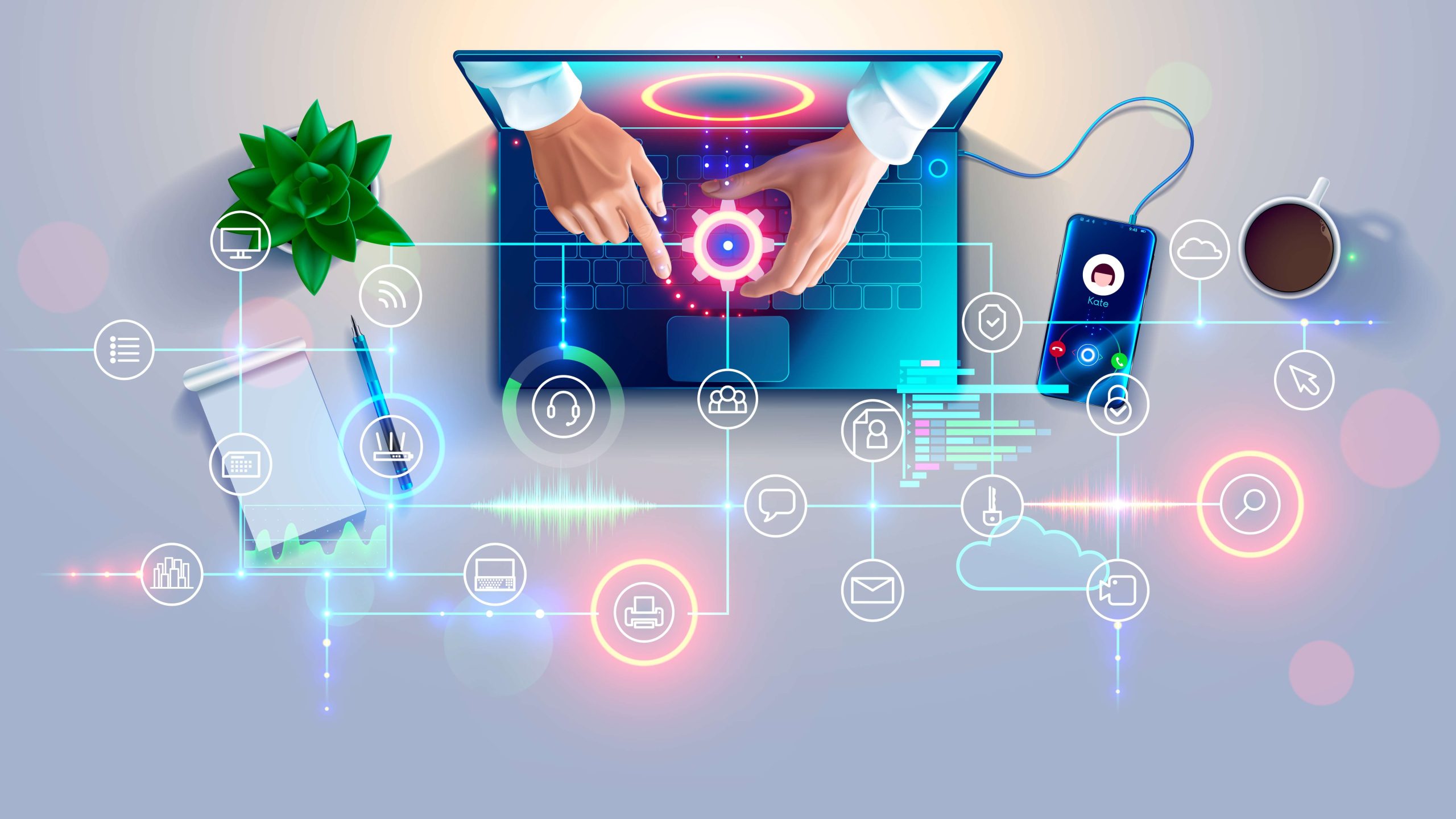The hospitality industry is undergoing a digital evolution, with modern technology reshaping nearly every aspect of how hotels, resorts, and restaurants operate. In a space where customer satisfaction is paramount and competition fierce, leveraging advanced technologies is no longer a luxury—it’s essential for survival and growth.
From intuitive guest-facing apps to sophisticated back-end integrations, the tech solutions available today are transforming operational efficiency and elevating the guest experience. This blog explores the key innovations revolutionising hospitality and how smart businesses can lead the change.
The Changing Landscape of Hospitality Operations
From Manual to Digital: The Shift in Operational Models
Hospitality was once driven by paper-based reservation books, landline calls, and face-to-face communications. While personal, these systems often led to delays, inconsistencies, and limited scalability.
Today’s digital-first landscape enables everything from real-time room availability to automated billing. Property management systems (PMS) now offer a centralised hub for operations, reducing human error and enhancing efficiency. What once required a full team can now be managed remotely with a tablet or smartphone.
Guest Expectations in the Digital Age
Today’s guests demand frictionless interactions. Long queues at reception are being replaced by self-check-in kiosks and mobile apps. Digital room keys accessible through smartphones offer enhanced convenience and security.
The experience doesn’t end at check-in. Guests now expect high-speed internet, smart TVs, app-controlled lighting, and even AI-powered concierge services. In this environment, only businesses that prioritise guest-facing technology will thrive.

Core Technologies Powering Hospitality Innovation
Cloud-Based Property Management Systems (PMS)
Cloud computing is at the heart of modern hospitality. These systems enable property managers to access critical data from any location. Updates can be deployed in real-time, across multiple branches, and with minimal disruption.
Benefits of cloud-based PMS include:
- Real-time booking synchronisation across channels
- Centralised data access for multiple departments
- Automatic updates without the need for on-site installations
- Reduced capital expenditure, thanks to subscription-based models
For businesses seeking flexibility and scalability, the cloud delivers unmatched advantages.
Artificial Intelligence and Chatbots
AI is becoming a cornerstone of customer engagement. Chatbots are now commonly used to handle bookings, respond to FAQs, and even recommend restaurants or local attractions.
Key benefits:
- 24/7 service availability without additional staffing
- Language translation to cater to international guests
- Personalised recommendations based on user history
Beyond guest interaction, AI also contributes to demand forecasting, dynamic pricing, and staff scheduling, enabling better business planning.
Internet of Things (IoT) in Guest Services
IoT devices have introduced a new level of control and comfort for guests. Smart thermostats learn preferred temperature settings, lighting adjusts automatically based on time of day, and voice assistants manage room service or housekeeping requests.
Common IoT integrations include:
- Smart climate control systems
- Motion-activated lighting
- Mobile room management apps
- Voice-controlled entertainment units
These innovations not only improve the guest experience but also enhance energy efficiency and operational cost management.
Enhancing Back-End Efficiency Through IT Integration
Seamless Communication Across Departments
A hotel’s success depends on its ability to operate like a well-oiled machine. IT systems now enable direct communication between front desk, housekeeping, maintenance, and room service, cutting down on delays and eliminating redundant tasks.
Real-time task allocation means housekeeping can be instantly notified of a check-out, or maintenance alerted of an issue as it’s reported. Everything becomes faster, more coordinated, and guest satisfaction improves.
Data Analytics for Informed Decision-Making
Hospitality businesses generate vast amounts of data, from occupancy trends to guest preferences. With integrated analytics tools, this data can be mined for insights that guide smarter decisions.
Data can support:
- Room pricing adjustments based on demand
- Identifying top guest preferences
- Pinpointing service bottlenecks
- Planning for seasonal staffing needs
Using these insights allows businesses to optimise operations and maximise revenue.
Cybersecurity and Data Privacy
With so much guest data—names, card details, preferences—security becomes critical. Cyber breaches can severely damage brand reputation and result in compliance issues.
Support from IT Support in Buckinghamshire ensures systems are updated with the latest patches, and firewalls and intrusion detection tools are properly configured. Additionally, businesses can remain compliant with regulations such as the General Data Protection Regulation (GDPR), crucial for legal and operational continuity.
The Role of IT Support and Consulting in Implementation
Even the most advanced tech can fail if not properly managed. Hospitality businesses need a reliable IT partner to ensure minimal downtime, responsive support, and secure infrastructure.
IT Support in Buckinghamshire provides:
- Proactive monitoring and maintenance
- Rapid troubleshooting during peak hours
- System performance optimisation
- Installation and upgrade support
Having a skilled IT partner allows businesses to focus on delivering exceptional service, knowing their technology backbone is in good hands.
How Healthcare IT Consulting Firms Offer Cross-Industry Expertise
It may come as a surprise, but healthcare IT consulting firms bring highly valuable skills to the hospitality sector. With a background in handling sensitive patient data and maintaining complex systems, these firms are adept at implementing secure, compliant, and reliable IT solutions.
Their contributions often include:
- Strong emphasis on cybersecurity best practices
- Deep experience in data migration and integration
- Customised consultancy for layered network architecture
By applying these strengths to hospitality, such consultants ensure the technology foundation is not only advanced but also resilient and scalable.

Planning for the Future of Hospitality Tech
Investing in Scalable Solutions
It’s not enough to adopt the latest tech—you need systems that can grow with your business. Scalable platforms allow you to add modules or new features as your needs evolve, saving future replacement costs.
Examples include:
- Cloud PMS with multi-property support
- Modular energy management systems
- Integrated customer relationship management (CRM) tools
This forward-thinking approach ensures long-term ROI on your tech investments.
Training and Change Management
Adopting new technology requires buy-in from the team. Poor implementation often stems from a lack of training and support. Comprehensive onboarding programmes help staff understand how to use systems efficiently and feel confident in the changes.
Best practices include:
- Interactive training sessions
- Regular skill refreshers
- Feedback channels for concerns
Change management isn’t just about teaching—it’s about empowering teams to embrace innovation.
Sustainable and Green Technology
Sustainability is becoming a key expectation among modern travellers. Tech can help reduce energy consumption, limit waste, and promote environmentally friendly operations.
Considerations include:
- Motion-activated lighting and AC
- Smart energy tracking systems
- Digital rather than paper billing
- Sourcing from sustainable tech vendors
Going green not only benefits the planet—it also builds brand loyalty among conscious consumers.
Conclusion
Revolutionising your hospitality business with advanced tech is not merely about keeping up with trends—it’s about gaining a strategic advantage. The right solutions enhance guest satisfaction, boost internal efficiency, and prepare your business for future growth.
From real-time guest service automation to back-end integrations secured by IT Support in Buckinghamshire, and structured implementations advised by healthcare IT consulting firms, the digital toolkit available to today’s hospitality leaders is more powerful than ever.
If you’re ready to take the leap, Renaissance Computer Services Limited is here to support your journey towards smarter, more profitable, and future-ready operations.


